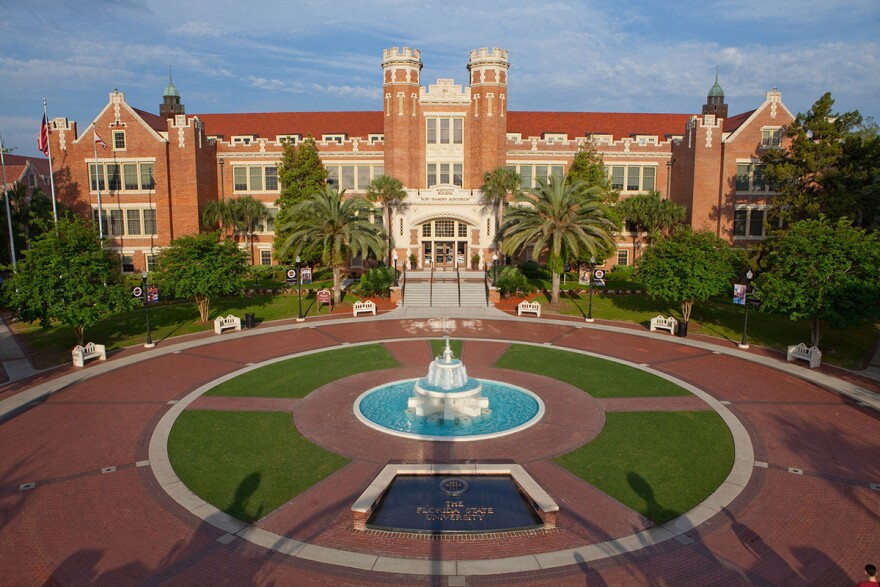Florida lawmakers are steps from closing the search process for public colleges and university presidents. Right now, most of those considerations are done publicly, with committees holding interviews and vetting candidates in meetings open to anyone. That could change after a key Senate vote Thursday.
Public record exemptions require a 2/3rd vote in each chamber. Democrats in the Senate technically have the numbers to block such bills but the presidential search exemption issue doesn’t fall neatly on partisan lines. Democratic Sen. Shevrin Jones has openly backed the issue for years.
“If you were to look at Florida State University, I want you to ask yourself, how many national presidents did you see apply for the position? None," he said.
FSU's new president Richard McCullough was Vice Provost for Research at Harvard.
Recruitment has long been an issue for the firms paid to carry out presidential searches. They’ve complained about the difficulty in getting sitting presidents to apply for jobs elsewhere. Another issue that’s long complicated the presidential search process in Florida is that lots of politicians want those jobs too. Republican Sen. Jeff Brandes points out when former State Sen. John Thrasher applied to lead FSU nearly a decade ago, other candidates didn’t even try for the job because they assumed it was Thrasher's.
"So what this does is provide no reason for anyone not to apply. Because if you don’t make the finalist list, your name will be held confidentially. So you have no incentive not to apply," Brandes said.
Thrasher recently retired from the FSU presidency. Brandes argued that the situation may not have happened if candidate names remained secret—effectively leveling the playing field for all applicants.
But Democrat Audrey Gibson challenged that assumption, noting the state has always found qualified people to run its schools. And if it isn’t broken, she said, why fix it?
“I’ve heard, even in committee, that we can get better presidents at our institutions if we follow this bill. As I’ve said, that’s really a slap and a ding to the presidents who’ve gone through this process.”
Gibson is also an FSU alum. But FSU aside, five of the state’s biggest public institutions are presently looking for new leadership—including the state’s flagship: the University of Florida. Outside of UF, there’s also the University of South Florida. Brandes pointed to a recent story in the Tampa Bay Times which suggested that school is also having recruitment problems.
“They [the search firm] said the problem they’re having right now is that people aren’t applying unless they’re guaranteed a finalist spot. Because that’s how the process has become. While we talk about transparency…today’s law is not sunshine for university presidents. It’s a tanning bed. It’s fake. It isn’t real.”
The Senate bill has an amendment backed by Democratic Sen. Darryl Rouson that requires the release of the age, race, and gender of all candidates who met the qualifications but didn’t make the finalist list. Finalist names would become public 21 days before a new president is named, allowing the public time to vet those candidates. The proposal now heads to the House where there is also some bipartisan support for it. The House plan keeps the review period open for only 14 days.









